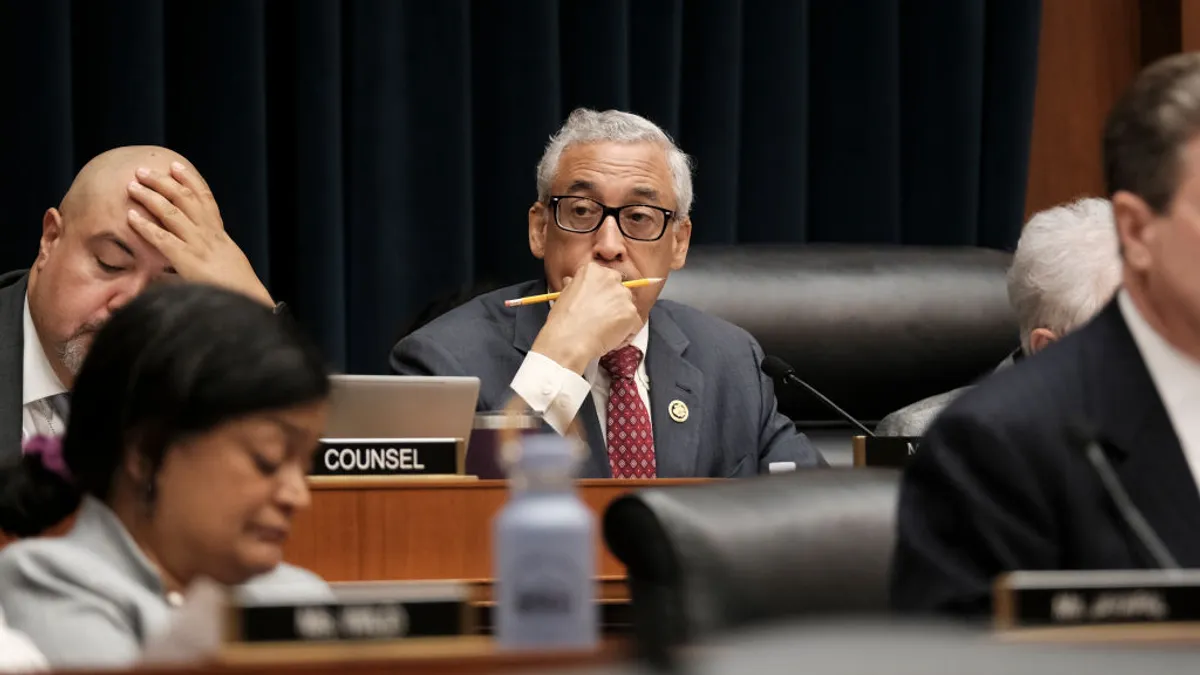Dive Brief:
- The House Committee on Education and Workforce voted Wednesday to advance a bill that would require colleges to report gifts and contracts valued at $50,000 or more from most foreign countries.
- That would lower the requirement from the current threshold of $250,000. Republicans argued that the bill, called the Deterrent Act, is needed to prevent foreign influence in higher education.
- The bill would also lower the reporting threshold to $0 for the “countries of concern” as determined by the U.S. Code or the secretary of education, which include China, Russia, Iran and North Korea. The proposal would bar colleges from entering into contracts with those countries unless the secretary of education issues them a waiver and renews it each year.
Dive Insight:
The Deterrent Act would amend Section 117 of the Higher Education Act, which oversees foreign gift and contract reporting requirements for colleges. Republicans on the education committee argued the measure is needed to provide more transparency.
A fact sheet on the bill included concerns about foreign adversaries stealing secrets from American universities and influencing student behavior.
The fact sheet also referenced a 2024 congressional report that accused two high-profile research institutions — University of California, Berkeley and Georgia Institute of Technology — of failing to meet the current reporting requirements through their partnerships with Chinese universities.
“Higher education is one of the jewels of American society,” said Rep. Michael Baumgartner, a Washington Republican who co-sponsored the bill, on Wednesday. “Unfortunately, it’s also an area that is often under attack and used by malign influences to subvert American interests.”
Under the bill, colleges would face fines and the loss of their Title IV federal student aid funding if they didn’t comply with the reporting requirements.
Democrats largely voiced opposition to the measure.
However, they focused many of their complaints Wednesday on the Trump administration’s recent moves that have sparked outcry in the higher education sector, including cuts to the National Institutes of Health’s funding for indirect research costs. A judge temporarily blocked the cuts earlier this week.
“I understand and I do appreciate the intent behind the Deterrent Act, but if House Republicans and the president truly want to lead in America, and they want America to lead, they must permanently reverse the cuts to the National Institutes of Health,” said Rep. Lucy McBath, a Democrat from Georgia. “It's not enough for us just to wait outside for the lawsuits to protect folks back home from damaging and possibly illegal orders like these.”
Virginia Rep. Bobby Scott, the top-ranking Democrat on the committee, struck a similar tone, referencing the Trump administration’s goal of eliminating the U.S. Department of Education.
He noted that the authors of Project 2025 — a wide-ranging conservative policy blueprint for the Republican administration — aim to dismantle the Education Department with the stated goal of having the federal government be less involved in schools.
“The argument rests on the perception that the federal government is too involved in our schools, and here we are marking up bills that would give the Department of Education more responsibility to impose unfunded mandates and interfere with local schools,” Scott said.
The House committee advanced several other bills Wednesday, including those that would allow schools to serve whole milk and aim to end Chinese influence in K-12 education.
House lawmakers previously passed the Deterrent Act in 2023, though it was never put to a vote in the Senate. At the time, the American Council on Education and other higher ed groups opposed the bill, objecting in part to the large fines colleges could face for noncompliance.
The Republican-backed bill may face better odds in this congressional session, now that the GOP also controls the Senate and the White House.















